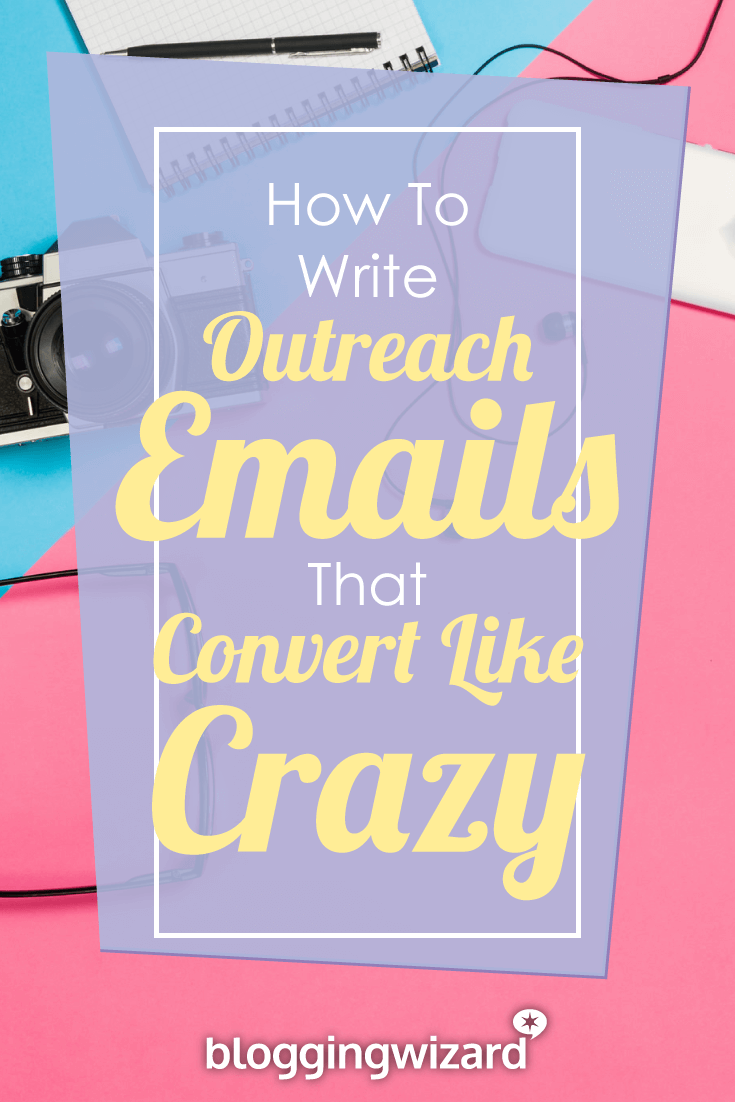How To Write Outreach Emails That Don’t Suck

Blogger outreach is one of the most effective ways to promote content, secure guest post opportunities, acquire backlinks and more.
But here’s the problem:
Most people rely on overly generic templates they find on the web.
Before you know it, conversion rates plummet because everyone else is using the exact same template.
I understand why:
It’s less time-consuming, and it makes the process far easier to outsource.
Heck, we’ve all got businesses to run right?!
But the truth is that relying on templates isn’t a sustainable strategy.
There’s a better way. And in this post, you’ll learn a complete framework that will make it easy to stop relying on generic templates.
Why frameworks are better than templates
There are a few issues that occur when using templates:
- Templates found on the web get used heavily, and conversion rates will diminish the more often they’re used.
- Most outreach templates are generic and don’t compel the reader to take action – they just come across as “hey you, you don’t know me, but you should give up your free time to help me”.
- Relying on templates won’t teach you anything about writing outreach emails.
- Due to the points above, you have to do a lot more prospecting for websites to contact.
And that’s just the start.
Yes, there are benefits such as being easier to send using popular blogger outreach tools and being easier to outsource. After all, you’re just giving someone a script so it’s easier to scale but they won’t learn anything.
Now, what about frameworks?
On the downside, you’ll send fewer emails, and they’re trickier to outsource.
But your emails will convert better, so you won’t need to send nowhere near as many.
You’ll also have a larger pool of potential opportunities to work with. If you use generic templates that run at a 3% conversion rate, you’ll cycle through far more sites.
And as you do, it becomes harder to identify potential sites that are a good fit to reach out to.
Now, my favorite part of this is the learning element.
Here’s why:
By learning to work with a framework, it forces you to think about which components are required in an email to help you get a positive response.
If you’re outsourcing the outreach process this will mean more time will need to be spent upfront with training, but you’ll spend less time on checking over work in the future.
This quote probably explains it best:
Give a man a fish and you feed him for a day; teach a man to fish and you feed him for a lifetime. – Maimonides
The 6 point framework for high converting outreach emails
This process is designed to reduce friction, build long-term relationships and unlock opportunities.
Let’s dive in:
#1 – Pre-outreach
This is the most time-consuming step, but it’s by far, the most fruitful.
Before you even think about sending an email, you need to get on the blogger’s radar.
At a basic level, this could include:
- Commenting on their blog
- Sharing their content on social media and tagging them
- Replying to their social media updates
- Help them out with something – e.g. an error on their site they may have missed
It’s also worth having a Gravatar set up to display your profile picture. This should be the same profile picture on your social networks – it will make you more recognizable when you eventually email them.
The reason why this step is so important is because you’re building connections and forging relationships with the rockstars in your niche.
#2 – Personalization
At a bare minimum, you should be including the name of the person you’re trying to reach.
If you don’t know it – go and find it because people will be far more likely to reply.
If you’re emailing a generic email address, look for a contact who works at that company – a little bit of personalization goes a long way.
Don’t be afraid to go a step further with this because it can often make the difference between getting a reply or your email getting binned.
A good example is an outreach email I received a while back; where the marketer referenced something personal from my Twitter account (my love of Chinese food and watching re-runs of Firefly).
That way, I knew that they were paying attention and not just blasting emails out without any thought.
#3 – Help the recipient
So many outreach emails are just poorly written pitches that mostly ask people to give up their time for free.
And by doing something to help the blogger out, before you’ve even asked them for anything – you’re far more likely to grab their attention.
But, to be clear – you need to do something to help them.
I get a lot of pitches from startups that want me to write reviews of their tools, and they make out they’re giving me a super exclusive free trial. Then I discover that it’s the same free trial that everyone gets.
How you help the blogger depends on the situation and what potential opportunities are available.
You could give them a heads up on a bug on their site, or it could be something as basic as sharing one of their posts with your audience.
#4 – What do you want them to do for you?
Have you ever received an outreach email that meandered and after reading it you were left with a feeling of “er ok, and?”
… Don’t do that.
Be absolutely crystal clear with what you’re asking from the blogger.
The key here is to make the call-to-action sound like it’s beneficial to both of you.
For example, don’t just say “I want to write a guest post for you”.
Instead, tell them how well a few of your other guest posts have performed, and that you’d like to do something similar for their audience.
#5 – What’s in it for them?
By this point, you’ll have already done something to help the blogger you’re trying to connect with.
That’s usually enough, but not always so I recommend going a step further.
The idea here is to tell them what you’ll do if they agree to your call-to-action. I particularly like to focus on the challenges that bloggers face when agreeing to someone else’s request.
Let’s use pitching guest posts as an example.
A lot of bloggers will publish guest posts and then realize that the contributor has no interest in sharing the post with their audience or replying to comments.
Which comes across as those the guest blogger doesn’t value their audience.
So, you can face those potential objections head on by saying something like:
“The post will be proofread and double checked in Grammarly. I’ll also respond to any comments and share it with my own audience”.
You could take it to the next level by offering extra value such as:
- Paid traffic (e.g. Facebook Ads/StumbleUpon Ads)
- Mentioning that guest post in future posts on other sites (they’ll get links = easy win for them)
#6 – Let them know who you are
A lot of outreach emails come from random Gmail accounts with no way of finding out who that person really is.
No links to their website, social profiles or anything.
This makes it difficult to put any trust in that person’s ability to write a decent post for your audience.
So, use your email signature here – include your name, links to your personal social profiles and include a link back to your site.
Wrapping it up
There we have it – a straightforward framework that you can apply to your blogger outreach process.
In an ideal world, every step in this framework should be followed. But, this isn’t an ideal world, and when you’re running a business and trying to do a lot with a small budget, sometimes corners have to be cut.
At the very least, try not to rely on templates that have been shared on the web. These get rinsed.
Create your own emails based on the framework I shared above, and you’ll notice your conversion rates jump up.
Here’s the bottom line:
By going the extra mile to make it worth the bloggers time, you make it difficult to say no, and you open the doors to a potentially fruitful relationship. A long-term relationship.
But, that means there has to be give and take. So you will need to put time and effort into maintaining these relationships.
This means that when you need something, these people will be there for you. Because you were there for them.

